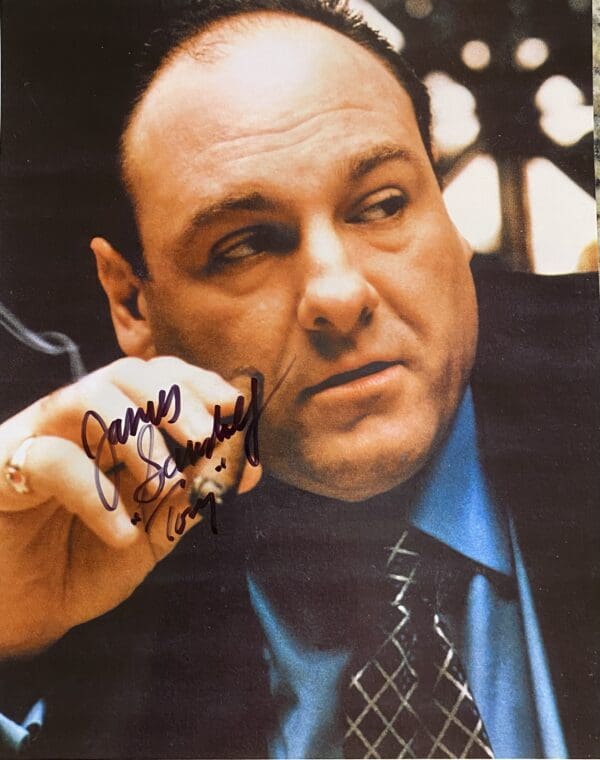James Gandolfini is a name that resonates with fans of television and cinema, particularly for his iconic portrayal of Tony Soprano in the critically acclaimed series “The Sopranos.” This article delves into the life of Gandolfini, exploring his early years, rise to fame, personal struggles, and lasting impact on the entertainment industry. By examining the man behind the mafia icon, we gain a deeper understanding of the complexities that shaped both Gandolfini’s life and the character he brought to life.
Early Life and Background
Born on September 18, 1961, in Westwood, New Jersey, James Joseph Gandolfini Jr. was the son of Italian immigrants. His father, a bricklayer, and his mother, a school lunch lady, instilled in him a strong work ethic and the importance of family. Growing up in a working-class environment, Gandolfini was initially drawn to sports and was a talented athlete, particularly in football.
Despite his athletic prowess, it was theater that captured Gandolfini’s imagination. He attended Rutgers University, where he received a degree in Communication Studies, and honed his acting skills in various college productions. His early experiences in the theater laid the groundwork for his future career, exposing him to the nuances of character development and performance.
Breakthrough Role: Tony Soprano

Gandolfini’s career took a significant turn when he was cast as Tony Soprano in HBO’s “The Sopranos,” which premiered in 1999. The series, created by David Chase, revolved around the life of a mob boss balancing the demands of his crime family with those of his personal life. Gandolfini’s portrayal of Soprano would go on to redefine the landscape of television drama.
- Complex Characterization: Gandolfini’s performance was both nuanced and multifaceted. He expertly navigated the character’s violent tendencies, vulnerability, and psychological struggles, earning widespread acclaim.
- Critical Acclaim: The series racked up numerous awards during its run, including 21 Primetime Emmy Awards. Gandolfini himself won three Emmy Awards for Outstanding Lead Actor in a Drama Series.
- Cultural Impact: Tony Soprano became a cultural icon, representing the complexities of modern masculinity and the moral ambiguity of the American Dream.
The Man Behind the Character

While Gandolfini’s portrayal of Tony Soprano was groundbreaking, it is essential to recognize the man behind the character. Off-screen, Gandolfini was known for his humility, generosity, and a deep appreciation for the craft of acting.
- Personal Struggles: Gandolfini battled with personal demons, including anxiety and depression. He was open about his struggles, often discussing the challenges he faced in balancing fame with personal well-being.
- Philanthropy: Despite his fame, Gandolfini remained grounded and committed to giving back. He supported various charitable organizations, including the Wounded Warrior Project and the USO.
- Family Man: Gandolfini was a devoted father, often prioritizing his family over his career. His son, Michael, was a significant part of his life, and Gandolfini worked to instill values of humility and hard work in him.
Post-Sopranos Career and Legacy

After “The Sopranos” concluded in 2007, Gandolfini continued to work in film and television, taking on diverse roles that showcased his versatility as an actor. His performances in films such as “Zero Dark Thirty” and “The Drop” demonstrated his ability to transcend the mob genre and explore new character archetypes.
Tragically, Gandolfini passed away on June 19, 2013, at the age of 51 while vacationing in Italy. His untimely death shocked fans and the entertainment industry alike, prompting an outpouring of tributes and reflections on his legacy.
The Lasting Impact of Gandolfini’s Work
Gandolfini’s portrayal of Tony Soprano remains a benchmark for television performances. His ability to humanize a character often seen as a villain blurred the lines between morality and immorality, allowing viewers to empathize with a character who was both a crime boss and a flawed human being. The impact of Gandolfini’s work can be seen in several key areas:
- Television Evolution: “The Sopranos” helped usher in the era of prestige television, paving the way for complex storytelling and character development in subsequent series.
- Influence on Acting: Gandolfini’s performance inspired a new generation of actors, demonstrating the importance of authenticity and vulnerability in character portrayal.
- Mental Health Awareness: By being open about his struggles, Gandolfini contributed to the conversation surrounding mental health, encouraging others to seek help and support.
James Gandolfini was more than just the man behind Tony Soprano; he was a talented actor, a compassionate individual, and a cultural icon. His portrayal of Soprano reshaped television and left an indelible mark on the industry. Gandolfini’s struggles and triumphs serve as a reminder of the complexities of fame and the importance of staying true to oneself. As we reflect on his life and work, it’s clear that Gandolfini’s legacy continues to influence not only the world of television but also the broader conversation about mental health, authenticity, and the human experience.


